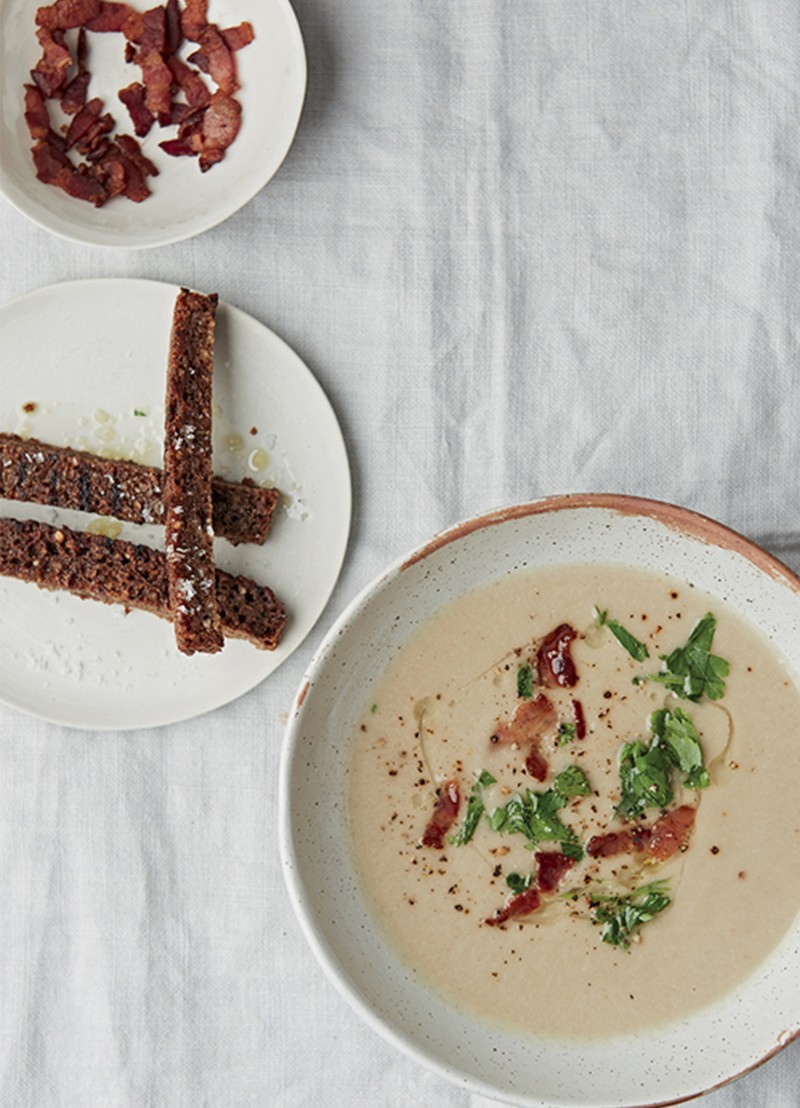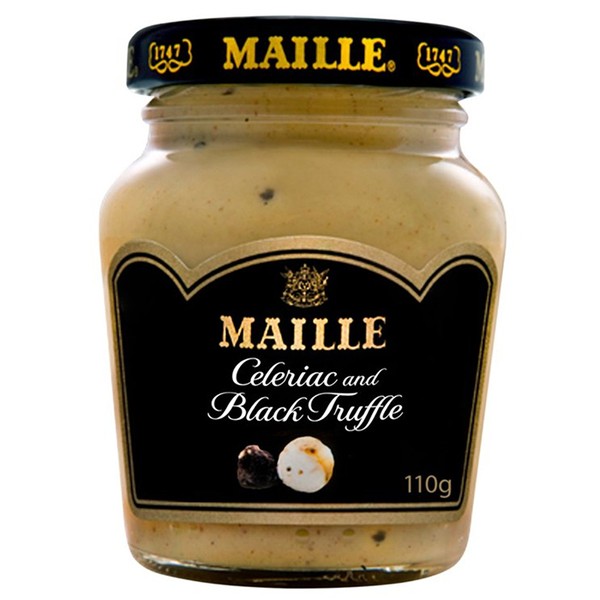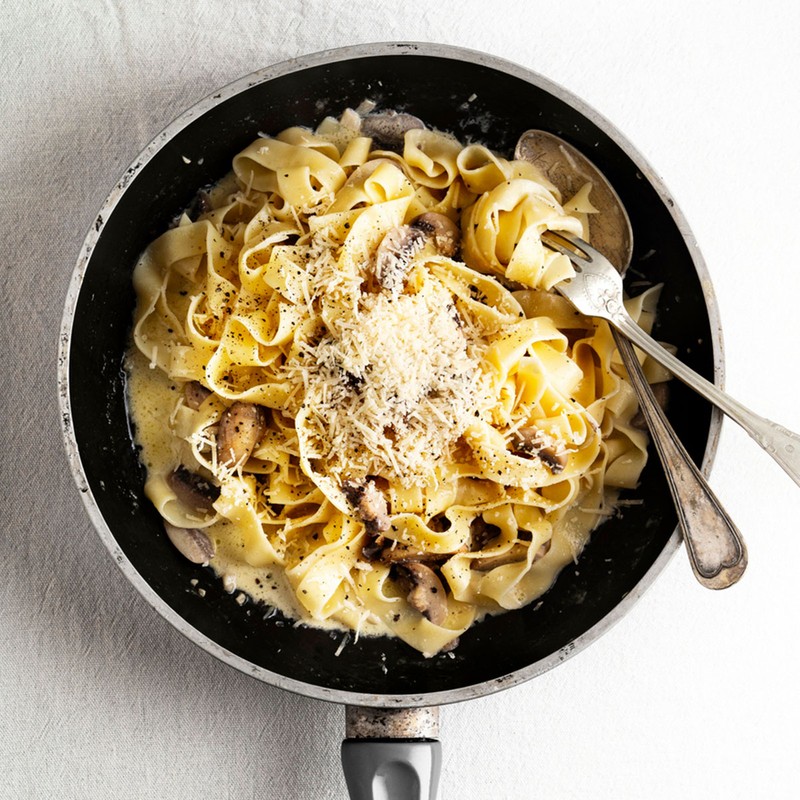
It’s Truffle Season – What To Know & How To Cook With It
What Are Truffles?
Truffles are underground fungi usually found in woodland. Many species are rare and edible, and as they’re considered a delicacy, they’re among the world's most expensive foods. Truffles are also difficult to grow commercially, which makes their earthy flavour synonymous with luxury. A single white truffle – one of the most-prized varieties – was once sold for £165,000.
In order to grow, truffles rely on being sniffed out and eaten by animals before being spread in their droppings. The aroma of truffles is designed to attract animals such as pigs – and these days, more commonly dogs – which have been used by truffle hunters for centuries to source this hard-to-find ingredient.
Why Is Now A Good Time To Eat Them?
Truffles are extremely seasonal. From now up until the end of December, it’s white truffle season; and from then until March, it will be black truffle season. Due to its short seasonality, the lifespan of truffle is often prolonged by preserving it in oils, vinegars, sauces and pesto – making it a much-more accessible product for the average buyer.
How To Cook With Truffle
Bocca di Lupo founder chef Jacob Kenedy tells us why truffle is his must-use ingredient…
Why is truffle so loved? As with many sexy things, truffle is desired by more than it is loved: either because for them it is unattainable (white truffle is darned expensive), or because it has rarity and economic value – for show-offs. Among its admirers, there are some true lovers of truffle – who value the heady perfume, the way it is a link to a particular terroir, and the fact that it is so seasonally ephemeral.
What is its flavour profile? I’m talking here about white truffle, which is in season between now and the end of December. Black winter truffle, which starts as white ends, is a different and also wonderful beast. White truffles are, to me, the earthbound equivalent of oysters. Eating an oyster is like having your face shoved momentarily into a rockpool. Smelling a truffle is to have your nose shoved deep into the rich humus of an ancient forest floor. The flavour on the tongue is delicate – slightly mushroom-y and garlicky. It is the aroma which is so exceptional, pungent, pervasive and quite frankly erotic.
Got any quick dinner tips using truffle? Take pretty much any bland and rich food, and shave white truffle over it – fried eggs, scrambled eggs, rich egg pasta drenched in butter, or risotto bianco. It is also great over white meats, beef or veal tartare, with anchovies, or even in delicate desserts. Shave it super-thinly over the food at the last minute, but be sure to clean it first.
What’s your favourite way to use it? Copiously.
Have you ever foraged for it? Yes, it is muddy and fun, involving very unprofessional-looking people and very unprofessional-looking dogs, both of which are absolute experts in their field.
Visit BoccaDiLupo.com
Feeling inspired? Try four of our favourite truffle recipes, from lasagne to truffled artichoke soup…
Potato, Onion & Goats’ Curd Tart: Oli Martin, Hipping Hall
Peel and slice your onions finely. Cook over a medium heat with plenty of oil and salt until lightly caramelised. Put in the fridge to chill.
Roll out the pastry to 2cm thickness. Top with the caramelised onions.
Peel and slice the potatoes thinly, arrange on top of the onion overlapping but not too much and leaving a 2cm border for the crust to rise, then brush with a little truffle oil. Season with salt, pepper and thyme. Top of with some crumbled goats’ cheese or curd.
Bake in the oven at 170°C for about 18 minutes, the potatoes should be cooked and pastry golden.
Add fresh rocket and truffle oil to finish.
Visit HippingHall.com
Artichoke & Truffle Ravioli: Duck & Waffle
First, make the pasta. Put the flour and eggs into a bowl and mix together really well, kneading until smooth. Cover with clingfilm and put into the fridge for 30 minutes.
Now make the filling. Heat a little olive oil in a medium saucepan and cook the artichokes gently for 8 minutes. Add the cream and lower the heat. Let the artichokes simmer until soft, at which point use a slotted spoon to remove them from the cream, put them into a food processor and blitz until smooth. If the mixture is too thick, add a little of the cream from the pan. Allow the purée to cool, then add the parmesan, salt, pepper and truffle.
Using a pasta machine, roll out your pasta gradually, starting from the thickest setting down to the thinnest it will go, about 0.5mm. Fold the pasta back together and repeat. It should be super-stretchy. Lay out the pasta on a floured surface, and on one half of the sheet put grape-size blobs of the artichoke purée, allowing 3cm free all around. You should be able to make 30 ravioli from this amount of pasta.
Run your finger, dipped in cold water, around the sides of the filling, then fold over the other half of the pasta and gently press down so that it sticks, avoiding any air.
Cut out the ravioli between the mounds of filling with a cookie cutter, one that allows a 2-3cm rim around the filling – a 6cm one should do. Store in the fridge, on a baking sheet dusted with semolina.
When ready to cook, bring a large saucepan of salted water to the boil and cook your ravioli for 3 minutes.
In another saucepan, melt the butter and gently cook the turnip leaves for 2 minutes, or until just wilted. Using a slotted spoon, remove the ravioli from the water and add to the butter and turnip leaves. Add a tbsp of the pasta water and let it bubble so that the sauce emulsifies. Keep the pasta moving at all times to avoid them frying like dumplings.
Turn out onto a serving dish and garnish with the crushed hazelnuts and freshly grated cheese.
Visit DuckAndWaffle.com
Jerusalem Artichoke & Truffle Soup with Rye Bread Croutons: Caroline Fleming, Cook Yourself Happy
Wash the artichokes well, then scrape off the thin outside layer with a kitchen knife. Cut the artichokes into thin slices and soak in water for 20 minutes, then drain.
Heat the olive oil in a large saucepan. Add the onion and fry for a few minutes to soften, then add the chopped bacon and fry for another couple of minutes. Next add the artichokes and pour in the stock. Bring to a gentle boil, add the salt, and simmer for 20 minutes.
While the soup is simmering, in a frying pan, heat the olive oil for the croutons and gently fry the garlic. Add the rye bread strips and sauté for about five minutes. Sprinkle with salt, then drain on kitchen towel until cooled and crispy. Just before serving, drizzle them with the truffle oil.
In another frying pan, fry the four rashers of bacon until crispy, then remove from the pan, drain on kitchen towel and chop.
Remove the soup from the heat, pour into a blender or food processor and blend to the desired consistency.
Serve the soup with the bacon and chopped parsley sprinkled on top. Finally, drizzle each soup bowl with a little extra truffle oil and serve the rye bread croutons either on top or on the side.
Follow @CarolineFlemingOfficial
Vincigrassi: David Bailey, Private Chef to Natalie Portman & Elton John
Preheat oven to 200°C.
Warm the milk, but don’t boil it. While the milk is warming, melt the butter, then add flour – cooking for a couple of minutes on a medium heat. Then add the warmed milk, a little at a time while whisking to create a lump-free white sauce.
Prepare the mushrooms by checking for any dirt and remove with a brush or cloth. Don’t wash the mushrooms as they absorb water like a sponge, which then means that they never fry to an appetising golden-brown colour. Chop the mushrooms to whatever shape pleases your eye, but just keep them roughly the same size so as they all cook at the same time.
Cook the mushrooms in the olive oil, then when they’ve taken on that almost chestnut-like colour from sautéing over a relatively high heat, they are ready to be added to the white sauce.
Add the prosciutto, cream, parsley, and any salt and pepper you feel it needs, and bring the sauce to a boil and take it off the heat.
Assemble the vincigrassi by first lightly buttering a baking dish big enough to feed six people. Cover the bottom with a layer of lasagne sheets. Then spread a layer of the white sauce, and a good handful of parmesan cheese. Repeat this process until you have about 4 layers, or until you run out of mushroom white sauce, but make sure you finish the dish with the white sauce as the top layer, and finish with parmesan.
Bake for around 20 minutes, or until the top of the vincigrassi is that irresistible shade of golden brown. It will be volcanically hot. So, while you’re waiting for it to cool maybe knock up a simple green leaf salad with lemon vinaigrette, and all that remains is to serve with as much white truffle as you like, or a drizzle of good-quality truffle oil.
Keen to eat ready-sourced truffle? Shop our favourite products below…
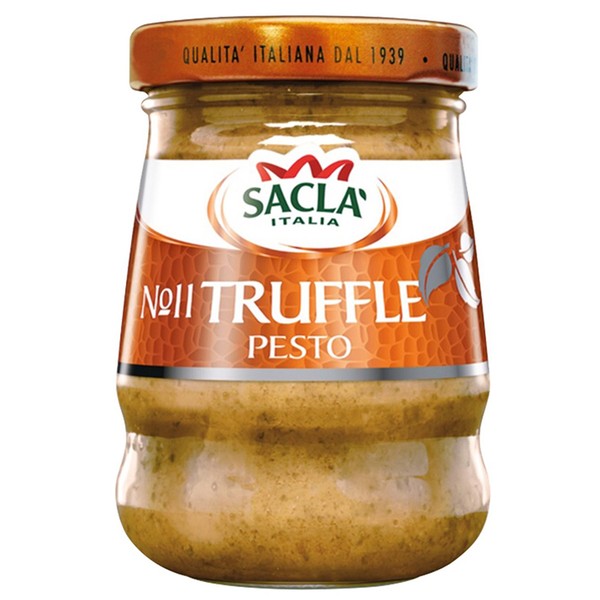
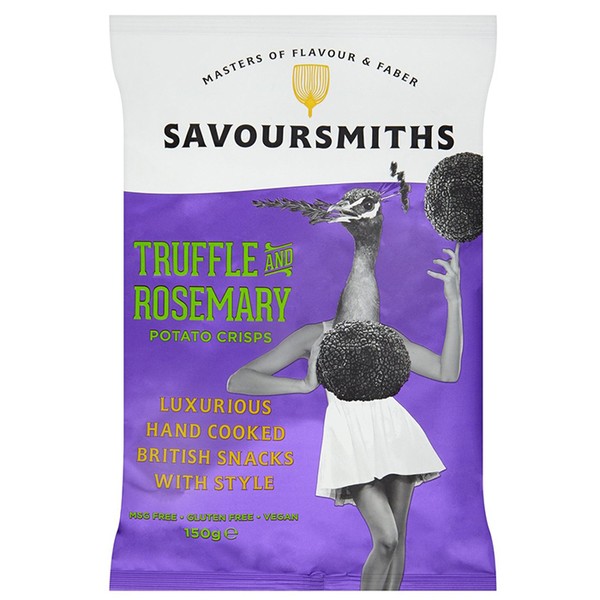
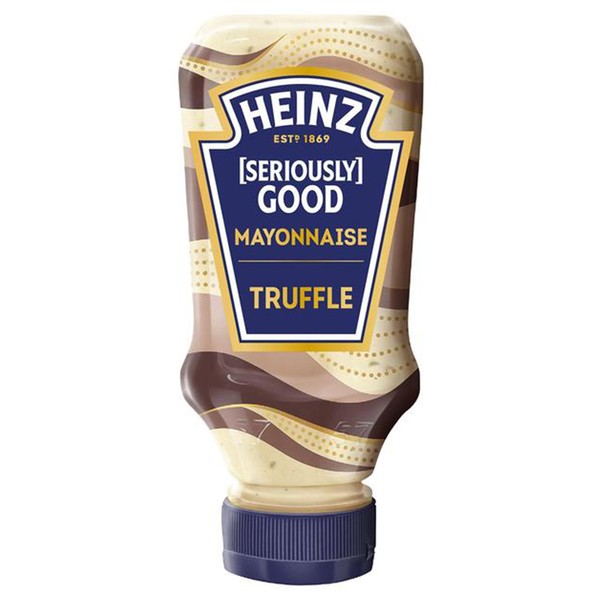
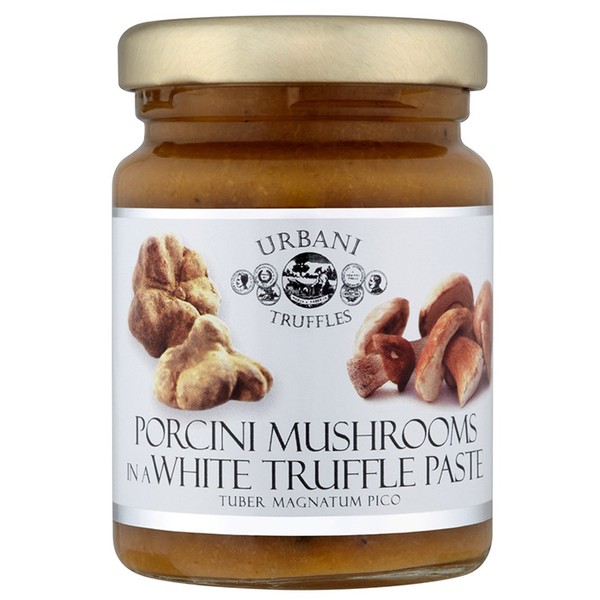
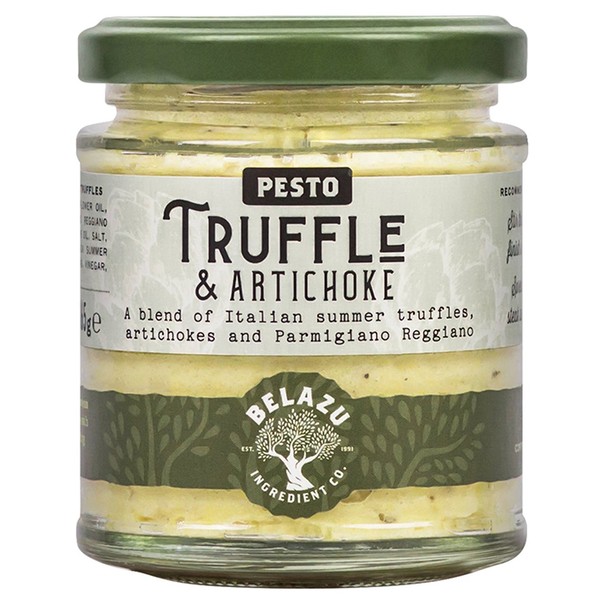
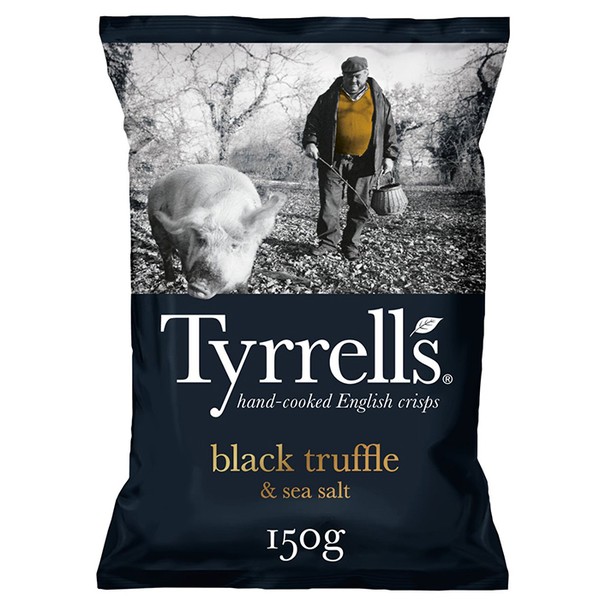
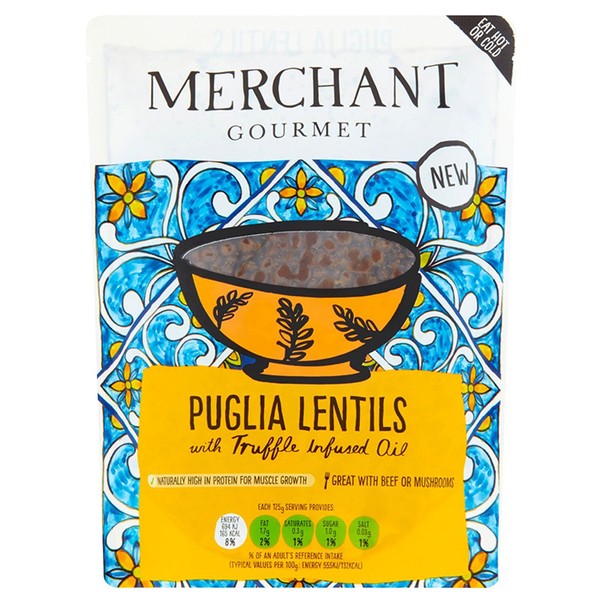
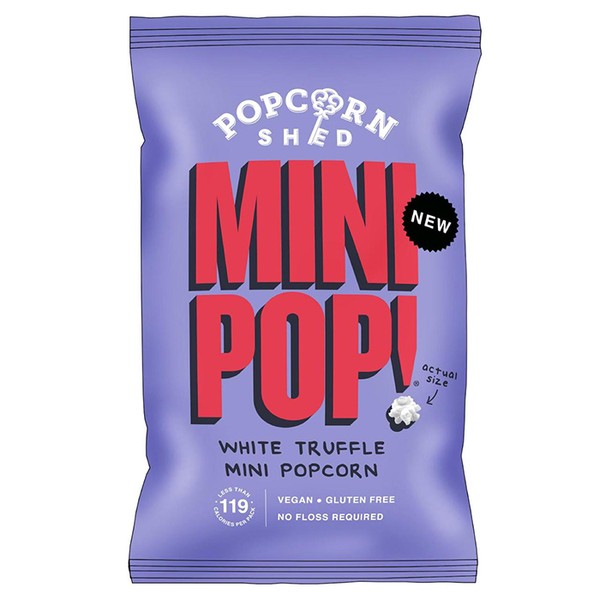
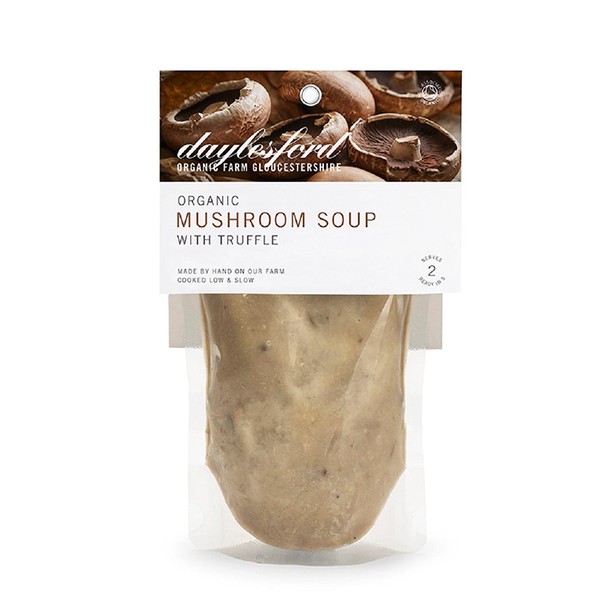
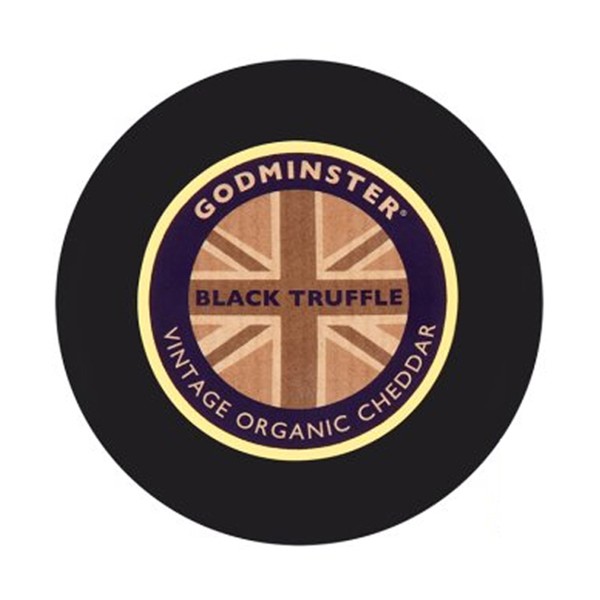
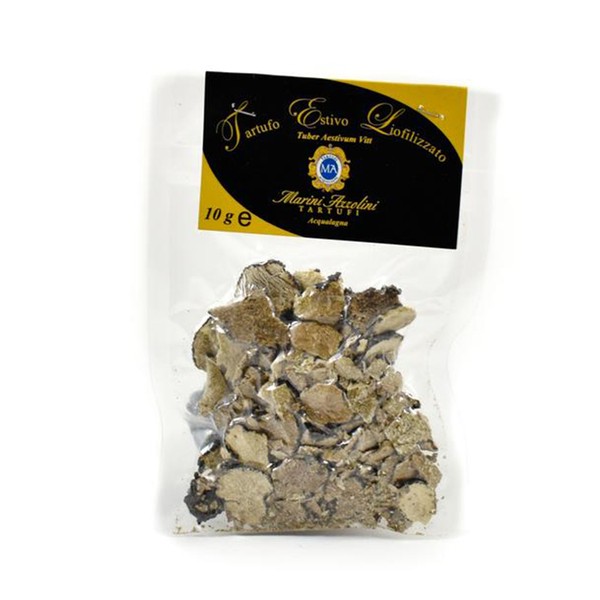
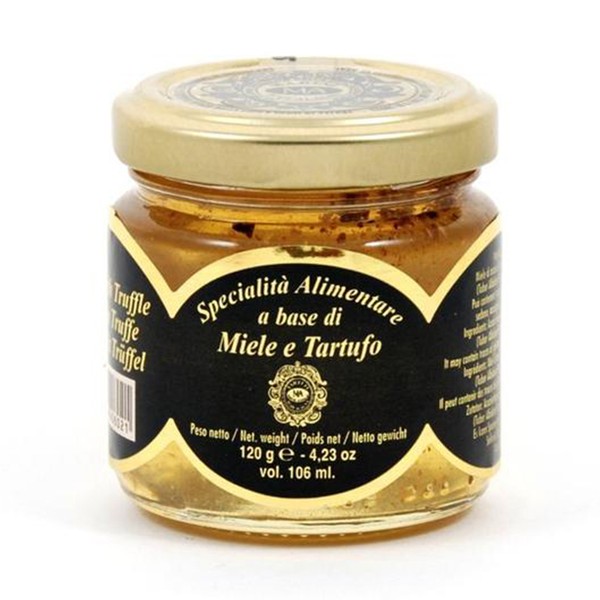
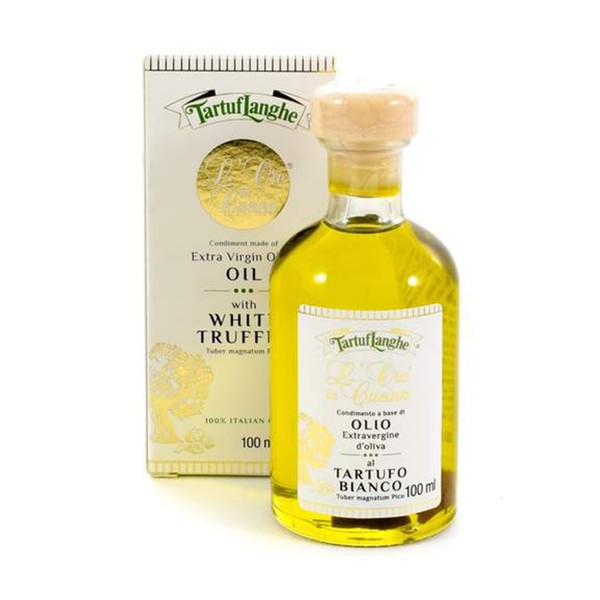
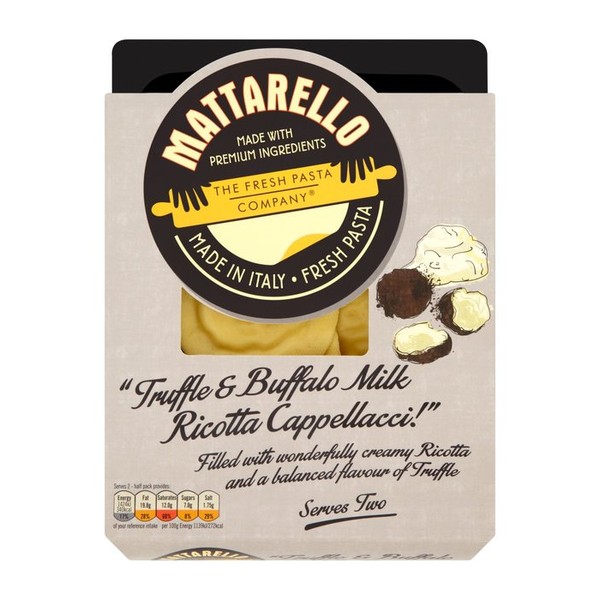
DISCLAIMER: We endeavour to always credit the correct original source of every image we use. If you think a credit may be incorrect, please contact us at info@sheerluxe.com.
